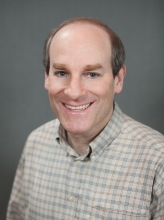
The Arctic Research Consortium of the United States (ARCUS) has been dedicated to connecting Arctic research across boundaries for more than 25 years. We work to support communication, coordination, and collaboration between researchers, among institutions, spanning disciplines, bridging sectors, and connecting nations. Witness the Arctic is one of many offerings we provide.
In order so that we can better serve you, I'd encourage each Witness reader to complete the Arctic research readership needs survey here. In today's environment of rapidly changing communications tools and media, we will be using the results of this survey to continue to provide you with the information and insights that you most need, and to get them to you in a timely and easily accessible manner.
Since I last wrote, ARCUS was very busy in support of connections at the Arctic Science Summit Week / Arctic Observing Summit / Arctic Council meetings and related events in Fairbanks during March. We welcomed more than 50 members of the Arctic research community to an Open House Drop-In Event with rich conversations and new connections. We kicked off the Arctic in the Classroom project with a "Make an Impact" workshop that brought together Alaska Arctic educators and researchers ready to collaborate in the development of STEM educational resources. I facilitated a well-attended and well-received listening session to gather input on priority objectives and implementation targets for the Interagency Arctic Research Policy Committee (IARPC) 5-year research plan. We were visible and actively connecting people throughout the events, hosted a joint exhibit booth with the Polar Research Board, and much more. A summary of highlights is at https://www.arcus.org/meetings/2016/assw.
Our Arctic Research Seminar/Webinar Series in Washington, D.C. has been very successful, drawing an audience of policymakers, resource managers, non-governmental organizations, researchers, and the interested public to hear from the leading researchers on the latest results. So far, we have hosted Julie Brigham-Grette (University of Massachusetts), Jennifer Francis (Rutgers University), Jeremy Mathis (NOAA and the University of Alaska, Fairbanks), and Ted Schuur (Northern Arizona University) for highly informative discussions at our ARCUS D.C. office and shared online via live, free webinar. Information and registration for upcoming presentations, and recordings of past presentations, are available at https://www.arcus.org/research-seminar-series.
In May, ARCUS held a Polar Prediction Workshop in support of the Sea Ice Prediction Network and in collaboration with Columbia University's Lamont-Doherty Earth Observatory. There was a wide range of prediction science discussed there and some great connections begun. Also, working in support of the Study of Environmental Arctic Change (SEARCH), we brought together a meeting of its Science Steering Committee and Action Team Leads focused on sea ice, land ice, and permafrost, as well as a number of cross-cutting issues.
Speaking of sea ice, our annual Sea Ice for Walrus Outlook (SIWO) season took place from March – June 2016. SIWO brings together information from the National Weather Service, the Sea Ice Prediction Network, and coastal Alaska Arctic communities to provide timely, valuable information on local sea ice to support subsistence activities. Also, the 2016 Sea Ice Outlook has begun, drawing upon an international collection of researchers to synthesize and improve our understanding of sea ice prediction. More information, including an invitation to participate, is available at https://www.arcus.org/sipn.
ARCUS is a member-focused organization and we invite you to join us. Last year, we expanded ARCUS membership access to all types of organizations and to individuals interested in championing the study of this important region. If you support Arctic research (or are engaged in conducting it), you should be an ARCUS member. Dues are not high, as we seek to represent and engage all those working toward better understanding of the Arctic and the application of that knowledge to decision-making. For more information on ARCUS and how to get involved, please view our ARCUS video at https://www.arcus.org/video.
Feel free to contact me with any ideas that you have for future content, or any other suggestions that ARCUS could pursue to better help you to connect across boundaries. I'd love to hear from you at bob [at] arcus.org.
Thank you for everything that you do in support of Arctic research.
Robert H. Rich, Ph.D., CAE
